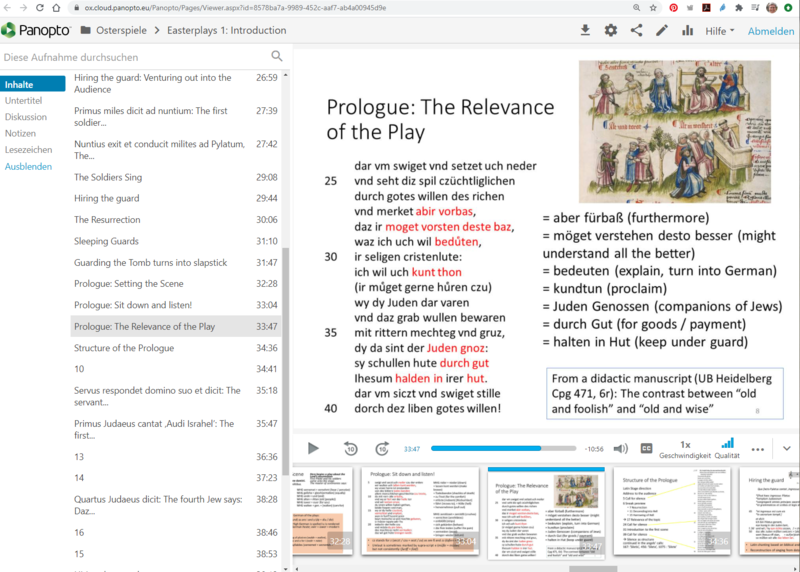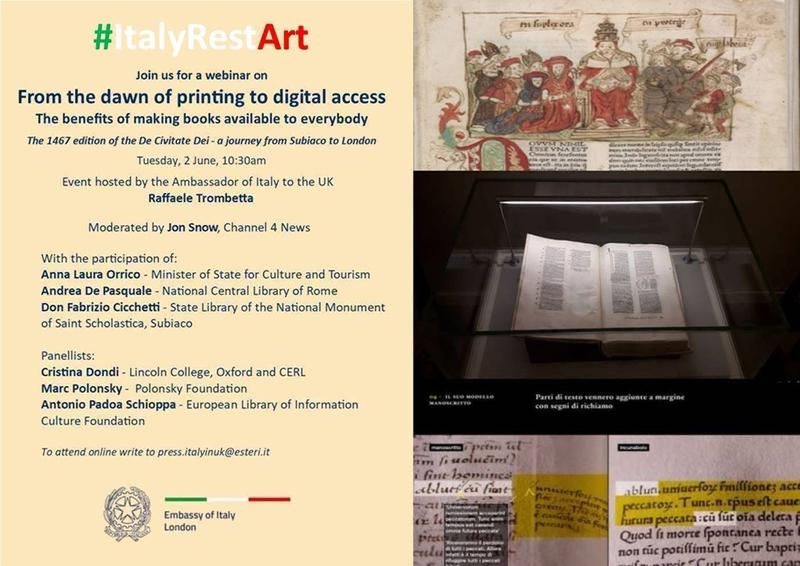By Florence Eccleston
Reblogged from Introducing Medieval Christianity.

The motif of the Seven Deadly Sins was extremely popular in the late medieval period, featuring in everything from literature, hymns, sermons, and manuals to wall paintings, manuscripts, and morality plays. The sins were Superbia, Avaritia, Luxuria, Ira, Gula, Invidia, and Acedia, now generally understood as Pride, Avarice (or Covetousness), Lust, Wrath (Anger), Gluttony, Envy, and Sloth (Laziness). They followed a loose hierarchy. Pride, the most demonic sin from which sprung the rest, came first. It was followed by the ‘spiritual’ vices, envy and wrath. Then came the vices related to the flesh: sloth, then gluttony, avarice, and lust. All were believed to fatally affect the individual’s spiritual health. As Dan Jon Gaytrygge’s mid-fourteenth century sermon expressed it, ‘For als the venym of the neddire slaas manes body, swa the venym of syn slaas manes saule’ (‘for as the venom of the adder slays man’s body, so the venom of sin slays man’s soul.’)
The idea of enumerating sins in this way originated in the early medieval period, and the motif of the Seven Deadly Sins in particular relies on a list made by Pope Gregory I in 590. By the twelfth and thirteenth centuries, Gregory’s list was being defended, deliberated, and extensively explained. A rationale was evolved to explain why seven (a number of great religious significance) and why those specific sins (a tricky matter to prove), and subsets of vices were added to each sin. After the Fourth Lateran Council of 1215 advised annual confession and gave the church greater authority for the remittance of sins, this definition of sin began to appear more frequently in popular literature, sermons, and guides for confessors. The Council stated that the worshippers should ‘faithfully confess all their sins at least once a year to their own (parish) priest and perform to the best of their ability the penance imposed’, the priest ‘carefully inquiring into the circumstances of the sinner and sin’. The Council added ‘let this salutary decree be published frequently in the churches, that no one may find in the plea of ignorance a shadow of excuse’. Clearly it was extremely important for every member of the laity and clergy to protect both themselves and/ or their parishioners from spiritual death and eternal damnation.
Lay people and clergy alike needed tools for recalling and identifying the sins to be confessed, and the numerical device of the Seven Deadly Sins proved very popular. The sins were so frequently expounded and depicted in art that it is likely everyone would understand them. By confessing their Deadly Sins, the perpetrator could achieve complete absolution and a penance to perform as atonement. (More minor sins, called venial sins, could be forgiven without the sacrament of confession, as long as the sinner had made a sincere resolution to reform their behaviour.) Confessing sins was not just about punishment: it encouraged regular self-reflection, and the act of penance and the provocation of shame was believed to bring the soul closer to God and reclaim individuals from a life of sin.

The Black Death in the middle of the fourteenth century seems to have increased the prevalence of the Seven Deadly Sins motif, as preparing for death and the afterlife became a primary concern. Dying without fully confessing one’s sins was greatly feared, since it would lead straight to hell. The scale and suddenness of the pandemic, with its estimated 30-60% mortality rate, made this fear a very pressing issue. In the fourteenth and fifteenth centuries, the ever-present threat of death and subsequent fear for the fate of one’s soul became a widespread theme in art and literature.
Paintings of the Seven Deadly Sins in churches would warn the worshipper of the danger and help them to gain protection against Purgatory and Hell. A famous example is found at Trotton in West Sussex, where the Last Judgement mural on the west (back) wall of the church, dating to the last two decades of the fourteenth century, presents the Seven Deadly Sins leading directly to damnation. Christ is depicted at the highest point, atop a cloud, performing judgement from the heavens. Below him to his right are the Seven Deadly Sins, personified by a naked man surrounded by scenes of each sin emerging from the mouths of dragons. Above, an angel sends a soul to hell on Christ’s command. The painting instructs the parishioner on the key behaviours to avoid in life to escape eternal damnation in the afterlife.

Antidotes to the Seven Deadly Sins
Increasing cultural emphasis on death and the afterlife in the second half of the fourteenth century did not just respond to a fear of hell, but also led to a greater interest in codes of morality and virtuous behaviour. The ‘remedies’ to the Seven Deadly Sins were cited in art and literature, and were also classified into Sevens: the Seven Heavenly Virtues and the Seven Works of Mercy. The Seven Virtues combined the four cardinal virtues (Justice, Temperance, Prudence, and Courage) and the three theological virtues (Faith, Hope, and Charity), and were thought to protect against the temptation to sin.
The Seven Works of Mercy referred to actions rather than attitudes, but were also thought to enhance the ability to avoid sin. They are divided into two groups of seven: corporeal (‘bodily’) works, which deal with physical and material needs, and spiritual works, which concern the needs of the soul. The corporeal works are:
- To feed the hungry
- To give water to the thirsty
- To clothe the naked
- To shelter the homeless
- To visit the sick
- To visit the imprisoned or ransom the captive
- To bury the dead
Unlike the Seven Deadly Sins, this enumeration is based directly on a list in the Bible. The first six works are listed in Christ’s Parable of the Sheep and the Goats as acts of charity which will lead to salvation. The last was added in the early medieval period to bring the number up to seven, influenced by the emphasis in the Book of Tobit on giving proper burial to the dead. In the Trotton wall-painting, the antithesis to ‘sinful’ man, surrounded by the Seven Deadly Sins, is ‘good’ man personified as a Franciscan friar, surrounded by the corporeal Works of Mercy. These behaviours are therefore sharply classified into good and bad, moral and immoral. Depictions of the Seven Works of Mercy are also frequently found in medieval art, as in the example below:

The spiritual Works of Mercy are:
- To instruct the ignorant
- To counsel the doubtful
- To admonish sinners
- To bear patiently with those who wrong us
- To forgive offences
- To comfort the afflicted
- To pray for the living and the dead
Neither of these groupings are in direct opposition to the Seven Deadly Sins, and treatises looking exclusively at both the Seven Heavenly Virtues and the Sins are rare. In other words, the sins and virtues do not mirror each other as positive and negative moral positions: for example, the opposite of lust, chastity, is not found among the Seven Virtues, or in any of the actions recommended by the Seven Works of Mercy. Thus although the Seven Deadly Sins is a very common motif in medieval art, it was not usually paired with the moralities, and it was even rarer for them to be directly opposed. More often they formed two separate codes of morality – what to do, and what not to do.
However, performing – or not performing – the Seven Works of Mercy was also a question of sinful behaviour, and so could also be used for confession. A late fifteenth-century instruction for priests, published by Wynkyn de Worde, lists the numerical devices to work through during confession: ‘Synnes be confession of the sevene dedly synnes, […] and thanne in not fulyllyng the seven werkes of mercy’ (‘Sins are confession of the Seven Deadly Sins… and then in not performing the Seven Works of Mercy’). This emphasises that sin is defined not only by sinful action but also neglect of moral duties. It is possible to sin by omission (failing to perform a duty) as well as by commission (committing an actively sinful deed).
Both the Sins and Works gained popularity in the Middle Ages as practical tools to analyse moral behaviour. These lists were aids to the memory and the conscience, helping Christians to interpret and reflect on their own actions and providing simple, memorable guidelines on how to behave more virtuously.
Further reading
For a survey of the Seven Deadly Sins from Late Antiquity to the end of the Middle Ages, see Morton W. Bloomfield, Seven Deadly Sins: An Introduction to the History of a Religious Concept, with Special Reference to Medieval English Literature (East Lansing, Michigan, 1952).
Richard Newhauser, The Seven Deadly Sins: From Communities to Individuals, Studies in Medieval and Reformation Traditions Series, No. 123 (Brill, 2007).
Richard G. Newhauser and Susan J. Ridyard, eds., Sin in Medieval and Early Modern Culture: The Tradition of the Seven Deadly Sins (York Medieval Press, 2012).
A great online resource is Miriam Gill, ‘The Seven Deadly Sins and Seven Corporal Works of Mercy in English Medieval Wall Painting: Imperfect Parallels’ (University of Leicester), available at https://www.le.ac.uk/arthistory/seedcorn/imperf.html
A Note From Florence:
I began writing for Introducing Medieval Christianity in the second year of my undergraduate degree in History of Art after seeing a call for articles open to anyone at any stage of their academic career. I wanted to broaden my interests and knowledge of other disciplines, and I thought researching and writing would be a good place to start. I emailed Eleanor with some possible topics, and wrote my first article ‘Light and Colour in Medieval Christianity’. Since then, I’ve written three more articles, as and when I had the time and inspiration! It has been really great being able to communicate my interests and research to a wider audience.














